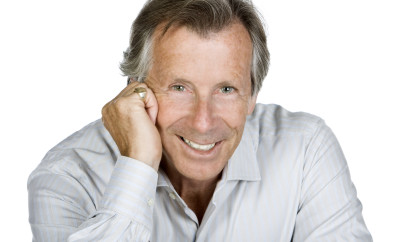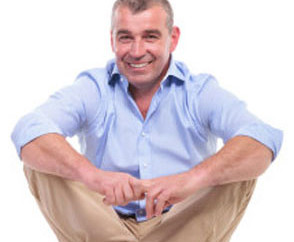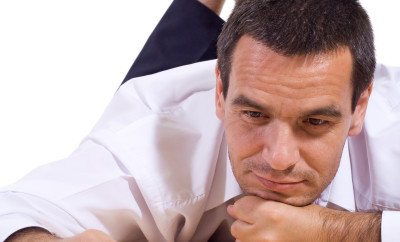
Introduction to Self-Esteem (Part 1 of 5)
Introduction to Self-Esteem (Part 1 of 5) by Steven Reeder, ACC
Look at me writing a column with my name listed right at the top, for a website discussing gay life. How funny that I’m putting myself out there. This would terrify my former self. What? Someone will know I’m gay? What if I’m judged? What if I’m laughed at? What if I’m threated? My younger self would flee the scene from anything bringing attention to me or my plight (as I saw it then) and hide in fear for my life. That sounds drastic, and that’s exactly how I saw the situation then.
Self-esteem is a topic everyone deals with, whether they realize it or not. It’s the fundamental power we possess to stay motivated, inspired and get things done in the world. These traits diminish in direct proportion to a lack of self-esteem. Many gay men, for better or worse, have a particularly arduous relationship with self-esteem. To be clear, no one is born with healthy self-esteem: straight, gay, black, white, north, south, east or west. No one is born with healthy self-esteem.
We might think that our straight counterparts had it easier. At least they weren’t taunted for being gay, the way we might have been. Granted, we may never know what other thing they might have been taunted for when we weren’t around: looks, skin complexion, weight, speech, athletic skill, or whatever. Kids can be pretty resourceful in finding things to highlight. Yet there is one thing gays and straights had in common in our development: we were both taught to despise homosexuality. Whether we knew what sexuality even was at a young age, we learned that boys shouldn’t have feminine traits, girls shouldn’t have masculine traits, and “fag” was a salacious label to keep in our verbal arsenal. I called my brother a “faggot” really loud when I was seven. I don’t know where I learned it, or what it meant, other than it was a very contemptuous thing to be (as was my brother).
And then later, we clue in to the feelings and attractions we’re having, and experience those first stirrings of same-gender attraction. Did I say stirrings? Some people have stirrings, I experienced full-on tornado. I had no confusion or shame about it, until I was observed and told by others that I had BETTER be ashamed, or we’ll beat it into you. (Thankfully, it was not my parents saying this, though I didn’t even broach the subject with them until adulthood.) It’s then that those of us in these circumstances put two and two together and the voices in our head say, “I AM that thing! I must be horrible!” At least, so says everyone else.
Here is where you face a fork in the road: do you walk boldly out and accept whatever judgment comes your way, or withdrawal into veils of secrecy, lest you are called out and/or attacked for being a horrible person? Some decide to march forward like William Wallace in “Braveheart” (or King Leonidis in “300” depending on how you’re received). However, not everyone has that kind of bravery or fortitude at a young age. Some may grow into adulthood and still never find it.
Change Your Life thru Coaching
Why is it so hard for some to find? It could be that they don’t know where to look. All those years ago, when we were told (either by others or the voices in our head) that gays were shameful awful people, we took one crucial action that set us on the course of our lives: we believed them. It’s perfectly understandable that we would. We hadn’t been through this puberty thing before, so we don’t know if we’re doing it right. We simply felt what came quite naturally to us, just as our straight counterparts felt what came naturally to them. We didn’t know any better. We also didn’t know that THEY didn’t know any better! So we assumed their experience was “right” and ours was “wrong.”
We now have the option to either keep believing all that misery and judgment from the past, or choose again. Every moment is an opportunity to choose again. Many times we will choose the past over the present, but practice will get us better at making the upgrade.
So where do we look for that sense of fortitude? We each have to look inside to the core of our being. If you do not go within, you go without. Your job is not to convince everyone else that you’re really OK. It’s up to you to convince yourself that you’re OK and that you always were. You don’t have to save the whole queer nation at once. Indeed you can’t, and that’s too much to take on. I’m just talking about you. If you’re anything like me, the man in the mirror is quite enough to deal with.
Forget about all the outside voices for a moment. The voices you want to confront are on the inside. The quality of our self-esteem is subject to how much credence we give the voices in our head. Often, these voices may have something important to tell us if we know how to interpret what they’re saying. Too often, we take literally what these voices say, and further our dis-empowerment. Rather than blame the voices for our failings, we can employ these voices as our guides if we can respond to their messages rather than react out of habit.
Over the next four installments, I’ll introduce you to the four voices that have been running your self-esteem, perhaps into the ground. These are not evil voices; they’re not out to get you. They just didn’t know any better. Now you do, and it’s time to show these four a better way.
Steven Reeder, ACC, CPC, ELI-MP
Two things in life strike him to the core: rock and roll, and personal growth and development. Electric guitars move his outer body, while the pursuit of wisdom and discernment moves his inner body.He synthesizes aspects of theology, science, training and development to present practical, tangible material that is immediately applicable to life for instant impact. Steven combines his knowledge of the metaphysical and the practical to create a unique approach to helping you create your best life. Steven is an Associate Certified Coach and Energy Leadership Master Practitioner, and is a featured contributor at GayLifeAfter40.com. For more information about Steven Reeder and one-on-one or group coaching opportunities, please email to Steven@StevenReeder.com.






2 Comments